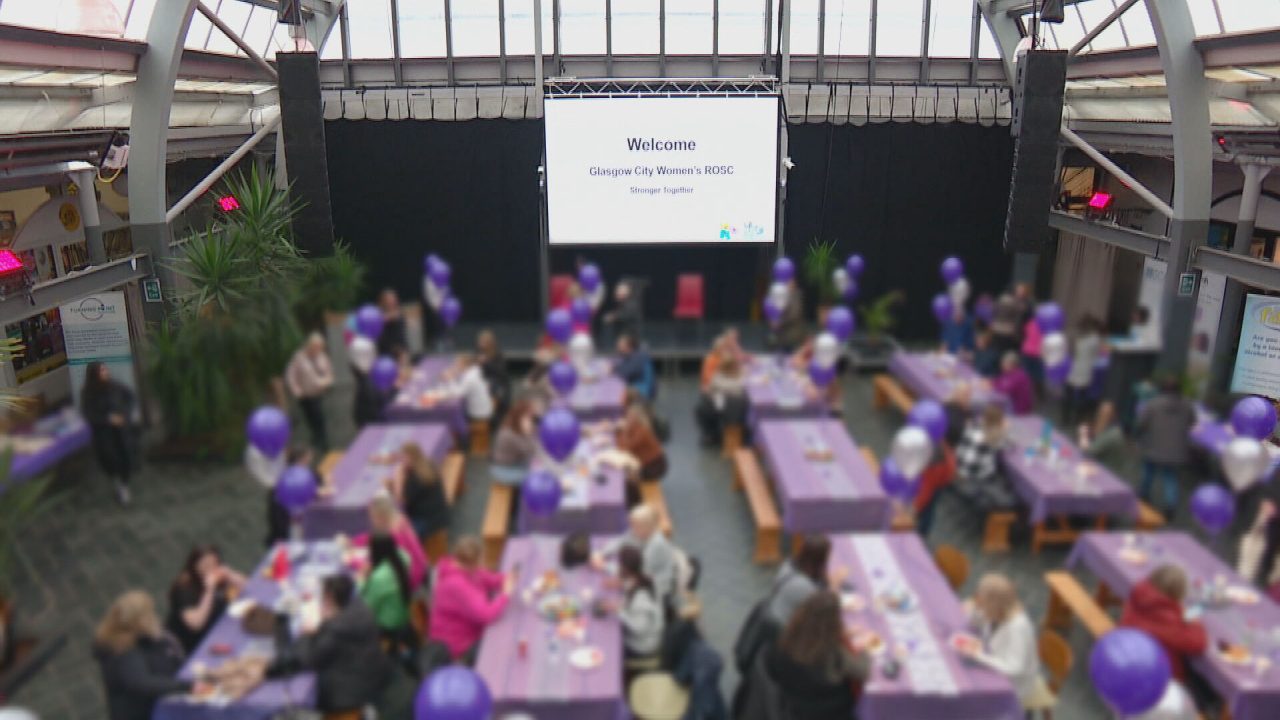“We don’t stop being a mother the day they take our children away.”
The voice on the stage is strong as she describes her experience with social services to the audience.
Those who gathered for the event at Glasgow’s Barrowlands nod in recognition as the woman recalls the impact of addiction on her family, the barriers she faced accessing help and how she is rebuilding her life.
Views of mothers who had their children taken into care have been pivotal in creating a new support service.
The women have named it Martha’s Mammies. In the month since its launch, 29 women have engaged with volunteers and are finally opening up about what is regarded as a “taboo subject”.
Stacey McLeary, team leader for Martha’s Mammies, says: “The women say having a space and place to speak with no judgement has been powerful. One woman likened it to a bereavement group.
“We must recognise that if they have never had a place to mourn that loss, they have never been able to deal with the trauma that goes alongside losing the right to care for your child.
“Right now, around 60% of the women accessing the service have issues around addiction. A lot of our focus is on bridging our support with that offered within the local recovery network.”
Those leading Martha Mammies say it’s a voluntary service, with an emphasis on keeping women safe and stable.
Stacey says: “We recognise the women’s experiences and the trauma they have faced can do a quite a lot of damage to the relationships they have with their family, their friends and their wider networks.
“Part of our focus is on repair and reparative work. A common issue for the woman is social isolation.”
Listening to this new approach are volunteers helping to provide addiction support in Glasgow that has been a lifeline to them.
Tricia is training to be a counsellor. Seven years ago, she was a very different person after a breakdown.
“I’m sitting here, and I’m not scared to say who I am,” she says. “For the first time in a long, long time I feel proud of myself.
“I wasn’t always like this. I was a mess and using alcohol and other substances like cannabis to hide my feelings.”
The 43-year-old says peer support, good friends and strong women from the recovery community have helped her reach the point where she is happy and healthy.
The mother of one knows women face multiple challenges when attempting to access help.
“Family and the stresses itself of looking after a family can make you not look after yourself and get you further into addiction,” she reveals. “That can then affect your kid and that’s just a vicious circle.”
Around 60 % of the volunteers in the Glasgow-wide recovery network are female.
Claire Muirhead, from the Glasgow City Drug and Alcohol Partnership, explains: “They’re caregivers, daughters, mothers from a range of different backgrounds.
“There’s been trauma, domestic violence, coercive behaviour, sexual exploitation, and they really do need that safe space to be able to come together.”
The Glasgow City ADP’s Women’s Lived and Living Experience Reference group meets at least once per month, but the Barrowlands event was the first time all its female services had gathered to celebrate their achievements.
Organisers hope it will become an annual gathering. They also have clear goals for future recovery services for women.
“A one-stop shop would be the dream,” says Claire. “Where you’re getting access to your mental health support, your physical wellbeing, childcare, advocacy, everything under the one roof.”
Follow STV News on WhatsApp
Scan the QR code on your mobile device for all the latest news from around the country




























